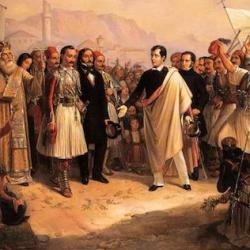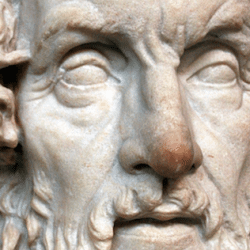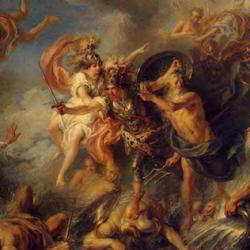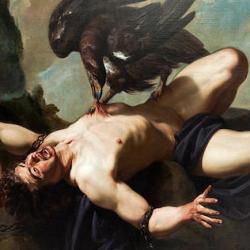J. M. Coetzee, the South African novelist who won the Nobel Prize for literature last year, offers an intriguing exchange concerning the classics and faith in his novel, Elizabeth Costello (I can’t read that without thinking “Elvis.”) Costello is a highly successful novelist now in her sixties who hits the lecture circuit and pontificates on various topics. The novel is largely a collection of the pontifications and the hubbub they cause with Costello’s family and colleagues. At one point, Elizabeth’s sister, Blanche, who is a Sister with a capital S in addition to being Elizabeth’s “blood sister” (as Elizabeth has constantly to explain) takes center stage. Blanche is receiving an honorary degree for her work with sick black children in South Africa, and she takes the opportunity to lecture the university granting the degree on the purpose of the humanities.
“The handful of men among whom the movement [of humane letters] originated of which you reresent, I fear, the sad tail ?Ethese men were animated,at least at first, by the purpose of finding the True Word, by which they understood then, and I understand now, the redemptive word.
“That word cannot be found in the classics, whether you understand the classics to mean Homer and Sophocles or whether you understand them to mean Homer and Shakespeare and Dostoevsky. In a happier age than our own it was possible for people to bluff themselves into believing that the classics of antiquity offered a teaching and a way of life. In our own time we have settled, rather desperately, for the claim that the study of the classics in itself might offer a way of life,or if not a way of life then at least a way of earning a living, if it cannot be proved to do any positive good, at least is on no side claimed to do any harm.” These comments spark a chapter-length discussion, as Elizabeth chimes in in defense of the novel, though not the classics, and others question whether Blanche is fair to the original humanist vision. Coetzee raises perennial questions, and in a fictional setting that allows a real dialogue to emerge.















